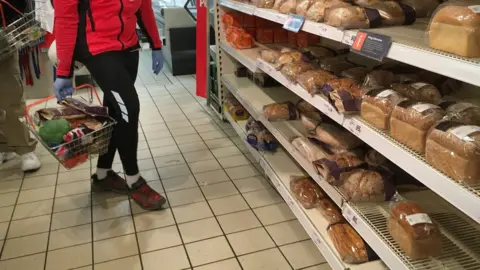Brexit: NI leaders warn EU of 'real threat' to food supplies
 BBC
BBCNorthern Ireland's first and deputy first ministers have written to the EU to urge flexibility in the operation of the new Irish Sea border.
They warn there is a "real threat" to food supplies unless solutions are found.
From 1 January, Northern Ireland will stay in the EU single market for goods but the rest of the UK will leave.
That means some food products arriving in Northern Ireland from Great Britain will need to be checked.
The EU has strict rules on products of animal origin: meat, milk, fish and eggs.
These products must enter the single market through a border control post where paperwork is checked and a proportion of goods are physically inspected.
All these products must also have an export health certificate - an expensive piece of administration.
This could add substantial costs to every trailer load of supermarket goods.
In their letter to the European Commission, first published by Irish broadcaster RTÉ, First Minister Arlene Foster and Deputy First Minister Michelle O'Neill said: "It is hard to imagine a more fundamental aspect of everyday life than the purchase of daily food supplies.
"Hence we would ask you to recognise how important it is that the current consideration of the detail of how the protocol will be applied takes our unique context into account."
Last week, the supermarket chain Sainsbury's warned it could reduce its ranges of meat, fish and dairy products in Northern Ireland.
The first and deputy first ministers said the supermarkets have "emphasised how critical the current situation is, with a real threat to the continuity of the supply of existing food and other products to our market unless these issues are urgently addressed and solutions found".
The supermarkets have been advancing the idea of a form of trusted-trader scheme which would reduce the need for new checks and controls.
Last week senior civil servants in Northern Ireland's suggested some of the new checks could happen in ports in Great Britain.
However all these mitigating measures would need to be agreed by the EU and that has not yet happened.
